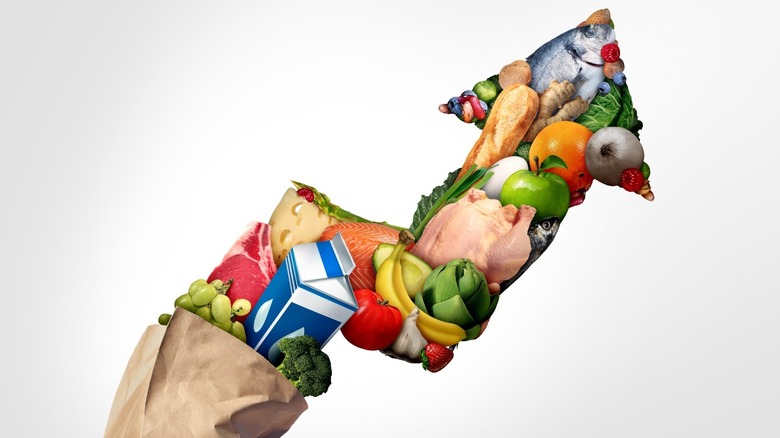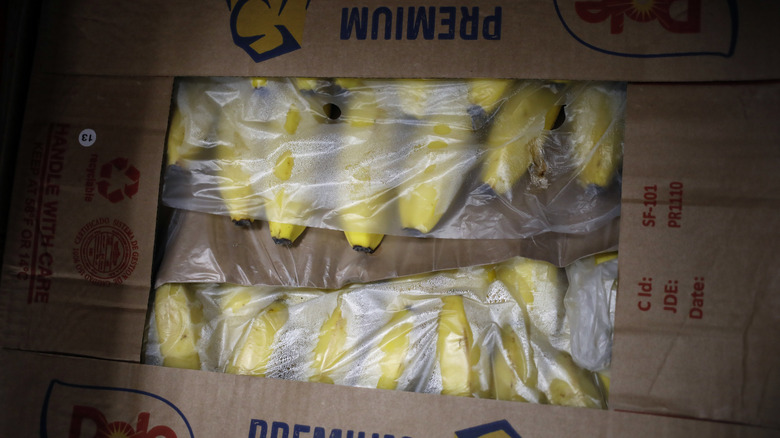The Unseen Reason For The Rising Price Of Food
Food prices are rising — and the reason might not be what you think. More specifically, the cost of rising food prices might not be just the one thing you think. Instead costs are being affected by multiple different factors. Forbes shares that both restaurants and grocers are balancing prices based on profit margins — a factor affected by the cost of commercial goods and ingredients. Food sellers have room to manage their pricing within these margins, but rising costs will ultimately increase consumer prices.
World Bank Blog shares that commodities have "surged" since war was declared between Ukraine and Russia, as well. Wheat and edible oils are listed as having the largest price increases, but overall food costs are expected to "rise about 20 percent this year before easing in 2023." Economist and associate professor David Ortega of Michigan State University adds that Ukranian-fueled cost factors are still combining with ripples from the COVID-19 pandemic, as areas like Shanghai continue to "cope" with additional lockdowns.
And let us not forget the increased price of oil and gas, and the ongoing effects of issues in the shipping industry. According to ProPublica, "This is where the plot ripens."
These prices are bananas
ProPublica describes the story of brand One Banana, which had 600,000 pounds of bananas stuck at port and no shipping trucks anywhere. While the bananas safely made it to Long Beach, California from Guatemala and Ecuador, the fruit would now go to waste sitting at port unless One Banana was willing to pay $12,000 each for the 15 shipping containers. If the brand accepted these fees, the "bananas could go from 60 cents a pound to 90 cents a pound."
But, adding a twist, the trucks were at the mercy of port costs themselves — in this case specifically, fees from Hapag-Lloyd. Claims telling of rising costs and poor container management are adding to shipping costs. "It's like renting a car at the airport, and when you try to return it, they're saying, 'No, you have to hang on to it for us, and we're gonna continue to charge you,'" said Fred Johring, CEO of one of the trucking firms, Golden State Logistics.
American Shipper reports that Hapag-Lloyd is, indeed, earning money, with $12.8 billion in earnings for 2021. Yet while these earnings are high, CEO Rolf Habben Jansen reports that so too are their expenses, such as US storage fees alone, which "increased by about $400 million over 2020."
So, we come full circle to a "chicken vs. egg" debate on who is triggering rising food costs and how. The only thing certain is these costs are hitting consumers' wallets hard.

